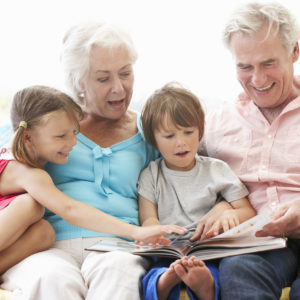Parenting is hard. There is no other way to describe it. And parenting at a time of social and political turmoil is especially challenging. Old social norms are losing their authority. Social media intrude on the family, often supplanting parental authority. Predators are a concern. Video games are a concern. The music is a concern. The list goes on and on.
As parents, our first instinct is to do everything we can to shield our children from the world around us. And that is a good instinct. But at the same time, it comes with a cost. If we shield them too successfully, do we keep them from preparing to take on the world when they become adults? What are parents to do?
I have thoughts about these things, as you do. I have made my share of mistakes as a parent, and I’m sure you would admit you have as well. And there is probably no one answer for every family. Having said this, I would suggest that most parents are trying too hard to protect their children from the world today. I certainly sympathize with this. When I look around, a lot of what I see scares me. But fear shouldn’t be our motivation as parents.
We need to find a way to strike a balance between too much fear and too little fear. We must look for ways to keep the pendulum from swinging too far in either direction. Aristotle taught that virtue is a mean between an excess and a defect — between too much or too little of something. And courage is a mean between too much fear and too little fear.
Let me ask a question: What do we see as our primary goal as parents? Obviously, we want to provide all the love and support we can for our children. But I suspect that many of us would say that our primary goal is to prepare our children for the future so that they can live successful, independent lives on their own. If that is our goal, then the most important thing is to teach them how to think for themselves. And that means that sheltering them too much is a mistake. They are going to need to know how to respond for themselves to all of the things that we hope won’t hurt them.
In other words, our children need to learn how to think critically. That involves weighing and balancing competing arguments. It means developing an ability to confront the harshness and the evil of the world around them. It means our children need to learn their limits. And it means that we need to know our limits as well. We can’t do this for them.
Of course, all of this needs to be done in an age-appropriate manner. No sensible person would want a kindergartner to be reading about abortion. But we should even look for age-appropriate ways to challenge kindergartners to think for themselves. If we set the bar too low for them at that age, they may never develop true independence. And by the time our children make it to high school, we shouldn’t be trying to shelter them. It’s time for them to deal with everything the world brings their way.
Censorship in schools is therefore the worst possible thing for our children. We do them a disservice if we try to keep them from feeling uncomfortable when their beliefs are challenged, even if those are our beliefs as well. And if we keep them from learning about the darkest moments in our nation’s history, they will not be able to understand today’s world. They need to read novels that reveal the beauty in the world around us and the ugliness of which human beings are capable. They must confront racism, sexism, antisemitism and other forms of hatred and prejudice. They need to ask questions about gender.
So the nationwide push by parents and politicians for new forms of censorship in schools harms our children. We are not showing them the respect they deserve if we focus on trying to indoctrinate them rather than inviting them to think for themselves. Laws that prohibit specific topics, books and even discussions from the classroom limit the ability of our children to think. If we want to bless our children by giving them the strength and wisdom they need to be independent, then we have to restrain our desire to always be protecting them.

